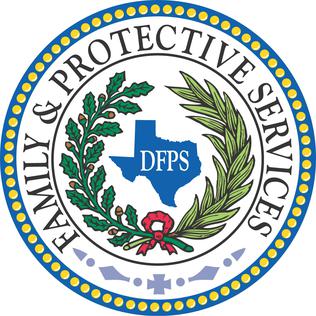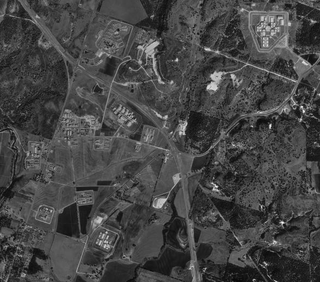
In criminal justice, particularly in North America, correction, corrections, and correctional, are umbrella terms describing a variety of functions typically carried out by government agencies, and involving the punishment, treatment, and supervision of persons who have been convicted of crimes. These functions commonly include imprisonment, parole, and probation. A typical correctional institution is a prison. A correctional system, also known as a penal system, thus refers to a network of agencies that administer a jurisdiction's prisons, and community-based programs like parole, and probation boards. This system is part of the larger criminal justice system, which additionally includes police, prosecution and courts. Jurisdictions throughout Canada and the US have ministries or departments, respectively, of corrections, correctional services, or similarly-named agencies.

Juvenile delinquency, also known as juvenile offending, is the act of participating in unlawful behavior as a minor or individual younger than the statutory age of majority. In the United States of America, a juvenile delinquent is a person who commits a crime and is under a specific age. Most states specify a juvenile delinquent as an individual under 18 years of age while a few states have set the maximum age slightly different. In 2021, Michigan, New York, and Vermont raised the maximum age to under 19, and Vermont law was updated again in 2022 to include individuals under the age of 20. Only three states, Georgia, Texas, and Wisconsin still appropriate the age of a juvenile delinquent as someone under the age of 17. While the maximum age in some US states has increased, Japan has lowered the juvenile delinquent age from under 20 to under 18. This change occurred on April 1, 2022 when the Japanese Diet activated a law lowering the age of minor status in the country. Just as there are differences in the maximum age of a juvenile delinquent, the minimum age for a child to be considered capable of delinquency or the age of criminal responsibility varies considerably between the states. Some states that impose a minimum age have made recent amendments to raise the minimum age, but most states remain ambiguous on the minimum age for a child to be determined a juvenile delinquent. In 2021, North Carolina changed the minimum age from 6 years old to 10 years old while Connecticut moved from 7 to 10 and New York made an adjustment from 7 to 12. In some states the minimum age depends on the seriousness of the crime committed. Juvenile delinquents or juvenile offenders commit crimes ranging from status offenses such as, truancy, violating a curfew or underage drinking and smoking to more serious offenses categorized as property crimes, violent crimes, sexual offenses, and cybercrimes.

A probation and parole officer is an official appointed to investigate, report on, and supervise the conduct of convicted offenders on probation or those released from incarceration to community supervision such as parole. Most probation and parole officers are employed by the government of the jurisdiction in which they operate, although some are employed by private companies that provide contracted services to the government.
A law enforcement officer (LEO), or peace officer in North American English, is a public-sector employee whose duties primarily involve the enforcement of laws. The phrase can include campaign disclosure specialists, police officers, prosecutors, municipal law enforcement officers, special police officers, customs officers, state troopers, special agents, secret agents, special investigators, border patrol officers, immigration officers, court officers, probation officers, parole officers, arson investigators, auxiliary officers, game wardens, sheriffs, constables, marshals, deputies, detention officers, correction officers, sworn campus police officers and public safety officers. Security guards are civilians and therefore not law enforcement officers, unless they have been granted powers to enforce particular laws, such as those accredited under a community safety accreditation scheme such as a security police officer.

A juvenile court is a tribunal having special authority to pass judgements for crimes that are committed by children who have not attained the age of majority. In most modern legal systems, children who commit a crime are treated differently from legal adults that have committed the same offense.

The American juvenile justice system is the primary system used to handle minors who are convicted of criminal offenses. The system is composed of a federal and many separate state, territorial, and local jurisdictions, with states and the federal government sharing sovereign police power under the common authority of the United States Constitution. The juvenile justice system intervenes in delinquent behavior through police, court, and correctional involvement, with the goal of rehabilitation. Youth and their guardians can face a variety of consequences including probation, community service, youth court, youth incarceration and alternative schooling. The juvenile justice system, similar to the adult system, operates from a belief that intervening early in delinquent behavior will deter adolescents from engaging in criminal behavior as adults.
The North Texas State Hospital (NTSH) is an inpatient mental health facility owned by the State of Texas and under the Texas Health and Human Service Commission's Health and Specialty Care System division. NTSH has three campuses, one in Wichita Falls and two in Vernon.

The Texas Department of Criminal Justice (TDCJ) is a department of the government of the U.S. state of Texas. The TDCJ is responsible for statewide criminal justice for adult offenders, including managing offenders in state prisons, state jails, and private correctional facilities, funding and certain oversight of community supervision, and supervision of offenders released from prison on parole or mandatory supervision. The TDCJ operates the largest prison system in the United States.
A diversion program, also known as a pretrial diversion program or pretrial intervention program, in the criminal justice system is a form of pretrial sentencing in which a criminal offender joins a rehabilitation program to help remedy the behavior leading to the original arrest, allow the offender to avoid conviction and, in some jurisdictions, avoid a criminal record. The programs are often run by a police department, court, a district attorney's office, or outside agency. Problem-solving courts typically include a diversion component as part of their program. The purposes of diversion are generally thought to include relief to the courts, police department and probation office, better outcomes compared to direct involvement of the court system, and an opportunity for the offender to avoid prosecution by completing various requirements for the program. These requirements may include:

The Texas Department of Family and Protective Services (DFPS) is responsible for investigating charges of abuse, neglect or exploitation of children, elderly adults and adults with disabilities. Prior to its creation in 2004, the agency had been called the Texas Department of Protective and Regulatory Services (DPRS).

The Texas Youth Commission (TYC) was a Texas state agency which operated juvenile corrections facilities in the state. The commission was headquartered in the Brown-Heatly Building in Austin. As of 2007, it was the second largest juvenile corrections agency in the United States, after the Florida Department of Juvenile Justice. As of December 1, 2011, the agency was replaced by the Texas Juvenile Justice Department.

The Department of Public Safety and Corrections (DPS&C) is a state law enforcement agency responsible for the incarceration of inmates and management of facilities at state prisons within the state of Louisiana. The agency is headquartered in Baton Rouge. The agency comprises two major areas: Public Safety Services and Corrections Services. The Secretary, who is appointed by the Governor, serves as the department's chief executive officer. The Corrections Services Deputy Secretary, Undersecretary, and Assistant Secretaries for the Office of Adult Services and the Office of Youth Development report directly to the Secretary. Headquarters Administration consists of centralized Divisions that support the management and operations of the adult and juvenile institutions, adult and juvenile probation and parole district offices, and all other services provided by the department.

The Department of Justice is a government department in the Northern Ireland Executive, which was established on 12 April 2010 as part of the devolution of justice matters to the Northern Ireland Assembly. The position of Minister for Justice is currently Naomi Long. The department's Permanent Secretary is Peter May. It combines the previous work of the Northern Ireland Office and the Ministry of Justice, within the United Kingdom Government, which were respectively responsible for justice policy and the administration of courts in Northern Ireland.
The Louisiana Office of Juvenile Justice (OJJ) is a cabinet-level Louisiana state agency that provides youth corrections services in the state.

The Gatesville State School for Boys was a juvenile corrections facility in Gatesville, Texas. The 900-acre (360 ha) facility was converted into two prisons for adults, the Christina Crain Unit, and the Hilltop Unit.

The Hilltop Unit is a Texas Department of Criminal Justice prison for women located in Gatesville, Texas. Originally opened in September of 1981 as a Male first offender Unit, it is headed by Warden Jerry Gunnels. Hackberry School was the first opened then in October Sycamore was opened and housed SAT IV Construction inmates who were working on Gatesville Unit and Hilltop repairing and buildings and facilities. Until May 1982, when the Hilltop Unit proper was opened.

Giddings State School is a juvenile correctional facility of the Texas Juvenile Justice Department located in unincorporated Lee County, Texas, near Giddings. In 2004, the state school was Lee County's largest employer.
Gulf Coast Trades Center / Raven School (GCTC) is a charter boarding school located in unincorporated Walker County, Texas, near New Waverly. The school, operated by the nonprofit agency Gulf Coast Trades Center Inc., is in proximity to Houston.
The Texas Juvenile Justice Department (TJJD) is a state agency in Texas, headquartered in the Braker H Complex in Austin.












